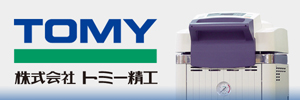ON-17:Assessment of bacterial effect following Asian dust events through comparison with seasonal variability in airborne bacterial community
Grad. Sch. Pharm. Sci., Osaka Univ.
Aeolian dust is primarily found in arid and semi-arid regions. When ascending air stream occurs in these regions, bacterial cells on dust particles can be lifted and transported over long distances by air currents. In Japan where from 3,000 to 5,000 km away from Aeolian dust source regions, about 4 million tons of Asian dust particles are estimated to be fallen out each year. Therefore, it is necessary to assess bacterial impact by Asian dust, and which requires accurate understanding of variations of the bacterial abundance and bacterial community structure under diverse conditions in non-Asian dust days. In this study, we estimated variation of airborne bacterial abundance and bacterial community structure on both Asian dust days and non-Asian dust days for a long term, including four seasons in outdoor environment. We sampled aerosol particles from May 2013 to Apr. 2015 (total 44 times). Bacterial abundance and community structure were determined with 16S rRNA gene targeted qPCR and pyrosequencing, respectively. Seasonal variation of bacterial abundance were not observed ([2±3] × 103 cells/m3). Interestingly, the bacterial abundance of each samples in non-Asian dust samples was dynamically changed in comparison with Asian dust days. The variation of bacterial communities on non-Asian dust days was rather stable without significant change by seasonal variation and changing weather. Bacterial community of Asian dust days was not differ from that on non-Asian dust days. The predominant phyla contained representatives from the Actinobacteria, Acidobacteria, Proteobacteria, Firmicutes, and Cyanobacteria in Asian dust days and in non-Asian dust days either. We demonstrated when Asian dust long-range transported, bacterial community is more affected by ground environments of transfer route and local environments. This study was supported by the JSPS KAKENHI (Grant-in-Aid for Scientific Research) Grant Number 25281030.
keywords:Asian dust,airborne bacteria,seasonal variation,16S rRNA,pyrosequencing




